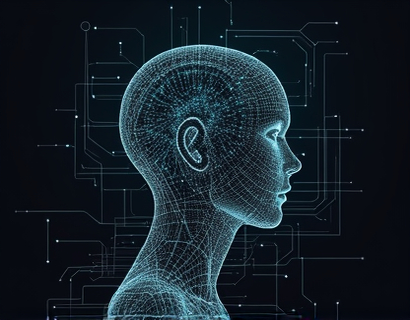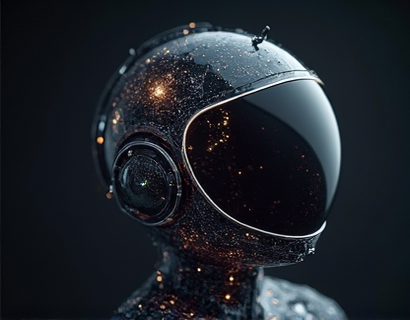Personalized AI Companions: Elevating Children's Creativity and Emotional Health Through Interactive Digital Friends
In the rapidly evolving digital age, the integration of artificial intelligence into children's lives presents both opportunities and challenges. One of the most promising applications of AI technology is the creation of personalized digital companions designed to enhance children's creativity and emotional well-being. These AI-driven imaginary friends offer a unique blend of interactive companionship and educational value, providing a safe and nurturing environment for young minds to grow and flourish.
The concept of AI companions for children is not new, but recent advancements in machine learning and natural language processing have made it possible to create more sophisticated and personalized interactions. These digital friends are not just pre-programmed responses; they can adapt to a child's personality, interests, and emotional needs, offering a tailored experience that fosters imaginative play and social skills development.
Enhancing Creativity Through Interactive Play
Creativity is a fundamental aspect of child development, essential for problem-solving, critical thinking, and emotional expression. AI companions can significantly enhance a child's creative abilities by engaging them in imaginative play scenarios. Unlike traditional toys or games, AI digital friends can dynamically adjust the play experience based on the child's input, encouraging exploration and innovation.
For instance, a child might start a story with a simple prompt, and the AI companion can build upon it, introducing new characters, settings, and plot twists. This collaborative storytelling not only stimulates the child's imagination but also helps develop narrative skills and language proficiency. The AI's ability to remember previous interactions ensures that the story remains consistent and engaging, motivating the child to continue the creative process.
Supporting Emotional Health and Social Skills
Emotional health is as crucial as cognitive development in childhood. AI companions can play a significant role in supporting a child's emotional well-being by providing a safe space to express feelings and thoughts. These digital friends can recognize and respond to a child's emotional cues, offering comfort, encouragement, and guidance when needed.
One of the key benefits of AI companions is their ability to facilitate social skills development. Through interactive conversations and role-playing scenarios, children can practice empathy, communication, and conflict resolution. The AI can simulate various social situations, allowing children to navigate these challenges in a controlled and supportive environment. This practice can boost their confidence and preparedness for real-world social interactions.
Personalized Emotional Support
Each child is unique, with different emotional needs and responses. AI companions can be programmed to understand and adapt to these individual differences, providing personalized support. For example, a child experiencing anxiety might benefit from guided relaxation exercises and positive affirmations, while another child might need encouragement to express their feelings openly. The AI's ability to tailor its responses ensures that the support is relevant and effective.
Moreover, these digital companions can monitor a child's emotional state over time, identifying patterns and trends that may indicate underlying issues. This data can be valuable for parents and guardians, helping them to provide additional support or seek professional help if necessary. The AI's role is to complement, not replace, human interaction, ensuring a holistic approach to a child's emotional development.
Creating a Safe Digital Space
In an era where online safety is a major concern, the idea of AI companions might raise worries about exposure to inappropriate content or interactions. However, when designed with safety in mind, these digital friends can offer a secure and controlled environment for children to explore and learn.
The AI can be programmed to filter and manage content, ensuring that interactions remain appropriate and beneficial. Parents and guardians can also set boundaries and monitor the child's interactions, maintaining oversight without intruding on the child's creative process. This balance between autonomy and supervision is crucial in fostering a healthy relationship with technology.
Parental Involvement and Guidance
While AI companions provide a valuable tool for enhancing creativity and emotional health, parental involvement remains essential. Parents can use these digital friends as a starting point for conversations about emotions, creativity, and responsible technology use. By engaging with their children about the experiences they have with AI companions, parents can deepen their understanding of their child's interests and emotional state.
Additionally, parents can collaborate with educators and child development experts to integrate AI companions into a broader educational and emotional support plan. This collaborative approach ensures that the benefits of AI technology are maximized while addressing any potential concerns.
Future Prospects and Considerations
The field of AI companions for children is rapidly evolving, with ongoing research and development aimed at improving the technology and expanding its applications. Future advancements may include more sophisticated emotional intelligence, enhanced realism in interactions, and broader integration with educational curricula.
However, it is crucial to approach these advancements with caution, ensuring that the primary focus remains on the child's well-being and development. Ethical considerations, such as data privacy and the potential impact on social skills if AI interactions replace human connections, must be carefully addressed. The goal should always be to augment, not substitute, the rich and diverse experiences that come from human interaction.
In conclusion, personalized AI companions offer a promising avenue for enhancing children's creativity and emotional health. By providing interactive, personalized, and safe digital companionship, these AI-driven imaginary friends can support a child's holistic development, preparing them for the challenges and opportunities of the future.











































